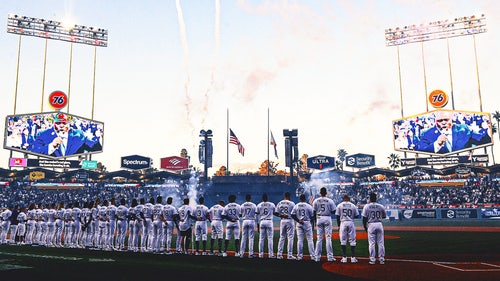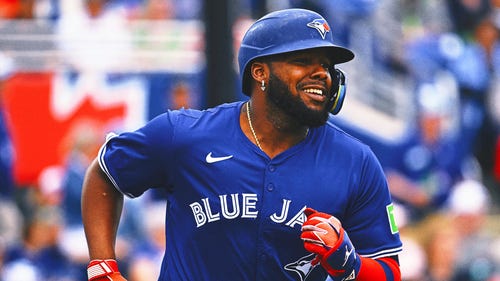
Louisville righty Kyle Funkhouser set to be a top-5 pick

RALEIGH, N.C. -- At 18 years old -- sometimes younger -- baseball players are often forced to make the toughest decision of their lives to date. Go to college for three years, or take what is almost always a very large sum of money and begin their professional baseball careers?
Scouts tend to think they know what you are right out of high school, and they'll often draft a player even if he says he isn't going to take the money, even if it's in a later round.
Louisville junior right-handed pitcher Kyle Funkhouser told scouts that he wasn't going to take the money. And so the late bloomer, who didn't start pitching full-time until his junior year of high school, didn't get drafted in 2012.
"As far as the draft out of high school, I really wasn't ready at all," Funkhouser said. "Maturity, and I had a lot to learn. I was kind of a late bloomer as far as being a prospect. ... The scouts understand. They just say 'Good luck, and hopefully we'll see you in a couple of years.'"
He grinned. "We're here now."
Funkhouser is considered to be a likely top-five pick in the MLB Draft in June, and he was practically a lock for that spot even before he pitched a game this season. He had a combined 18-4 record in his first two years at Louisville, sporting an ERA of 2.14 as a freshman and 1.94 last season.
So he went from a kid that was undrafted out of high school and largely ignored until his junior year, to a player who is going to be a top-five pick.
It's been a crazy ride for him, and he can't help but smile and shake his head when he thinks about what's to come, and how glad he is that he has spent the last three years at Louisville honing his craft.
"Working out and doing all that stuff for the past almost three years now, it's paid off a lot," Funkhouser said.
It's really been more than that, though. Funkhouser said that once he decided to switch to pitching full-time, that's when he knew baseball -- which had been one of three sports he played, along with basketball and football, at his Oak Forest, Ill. high school -- was his gift.
"It kind of hit me my junior year in high school....I was like, 'Wow, I'm pretty good at this'," Funkhouser said, seeming almost sheepish.
The 6-foot-3, 225-pounder is sturdily built, quick with a friendly smile and is engaging and conversational -- not always character traits you see in a highly-touted prospect. And he's not nearly as impressed with himself as many prospects are.
The way he recounted his story of how he went from undrafted player to a top-five prospect was as casual as it gets.
When he arrived at Louisville, he was about 25 pounds lighter and a few pitches shorter in his arsenal. He worked to add strength, which in turn added velocity to his fastball, getting it from the low 90's into the mid-90's, where it is now.
But more importantly, he added pitches. "I would say that I have -- if you count a two-seam and a four-seam fastball, I throw five different pitches," Funkhouser said. "Two-seam, four-seam, slider, curveball, changeup."
The slider is a pitch that at least one scout called "a punch-out pitch when he commands it", and Funkhouser didn't even learn that pitch until college.
As soon as he graduated from high school, he enrolled at summer school in Louisville and started working on his game. Fall baseball can be big for all college baseball players, Funkhouser said, and he was no different. He used that team to work on and incorporate new pitches into his game -- including the slider, which is now one of his favorites, along with his fastball.
"At this point in my career, I'm comfortable enough with all of them to throw them basically whenever. But when it's a situation of whether it's this (pitch) or this (pitch), yes, I have preferences of the slider over the curveball or the slider over the changeup," Funkhouser said.
Once he spent the fall trying out his new pitches in scrimmages and in live-game situations, he felt comfortable enough to use them in games. After coming out of the bullpen as a freshman, he became a full-time starter last year and went 13-3, allowing 26 earned runs all season and striking out 122.
He's now playing in his third different conference in three years -- Louisville was in the Big East in 2013, the AAC a season ago and now, the ACC -- but his team snapped Florida State's nine-year dominance of the Atlantic Division, and clearly are right at home in ACC baseball.
Things haven't been so easy for Funkhouser, though. He's 6-4 this year in 14 starts and 4-2 in 10 ACC starts, and he's already allowed more earned runs (31) than he did all of last year (26).
He's been a marked man all of this year though, and while some pitchers have the benefit of knowing opposing hitters' tendencies really well from playing against them year after year, Funkhouser obviously didn't have that luxury.
Plus, who wouldn't want to get a hit off of a potential top-five draft pick?
"It's the same thing for me if I'm pitching. If there's a guy having a good year or a higher prospect, you really want to go out there and get him out. I'm sure hitters and even other pitchers, too -- hey, I want to win, but I also want to beat this guy. That happens all the time," Funkhouser said. " But maybe this year more than ever because we're new to the league and there's this guy who maybe people don't know about and it's like hey, if I can get a couple hits off this guy then maybe I can turn my season around or maybe I can get noticed or something like that.
"Being new to the league I think definitely people thought hey Louisville's good but this is the ACC. I think we've played well up to this point, but we've still got a lot of baseball left to play."
There are concerns about Funkhouser. Why wouldn't there be? When a guy is going to be drafted as highly as he is, he's going to be scrutinized.
But one thing that's never been questioned about him is his heart and toughness. And that toughness has been tested more than ever in a league where nothing comes easily.
"Not to take anything away from the Big East or the AAC, but there's a lot more prospects in this league, a lot better teams traditionally," Funkhouser said. "The thing that I learned the most is there's never a free out. You can roll through two innings and then all of a sudden, you're at 7-8-9 (in the order) and they can easily get three hits in a row. You look up and it's 1-0, first and third, nobody out. That's kind of the biggest thing.
"There's no free outs and every pitch means something."










